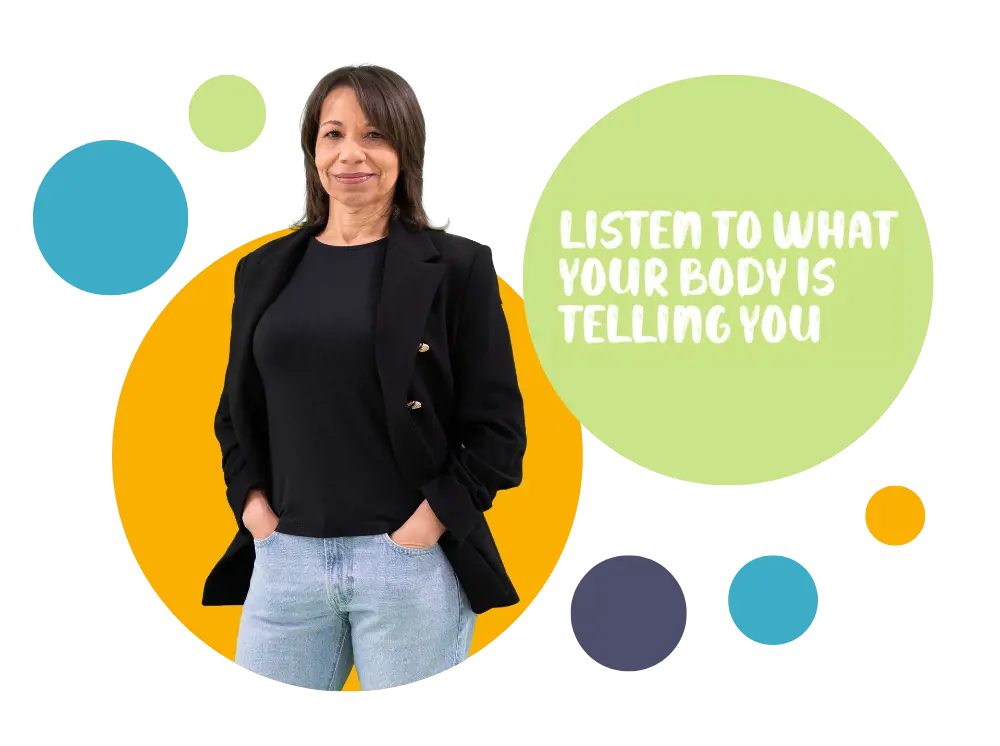“Ovarian cancer isn’t as silent as you think”
North West Cancer Research tells us to listen to our bodies

North West Cancer Research tells us to listen to our bodies

Feeling bloated, a lack of appetite, and an urgent need to wee are just some of the signs that North West Cancer Research is telling us to listen to, as part of its latest campaign.
Launched today (Tuesday 29 April), Listen to What Your Body Is Telling You highlights the most common symptoms of ovariancancer, urging people to take notice and consult their doctor.
In the North West, ovarian cancer incidence rates are 17% higher than the national average, according to the latest data.
Across the region, Cumbria’s rates are 41% higher than the national benchmark, while Merseyside is 26%; Lancashire is 17%; Cheshire’s 19%; and Greater Manchester is 2%* above the average.
Among those backing the latest campaign from North WestCancer Research is Katherine McBride, from Preston, who was diagnosed with ovarian cancer in July 2023.
Mum-of-three Katherine, 55, said: “I remember starting to feel tired a lot – it was a different type of tiredness to anything I had experienced before and I felt exhausted all the time.
“However, I brushed this off as a symptom of the menopauseand, to be honest, felt a bit silly going to the doctor to say I was tired! After a series of blood tests and X-rays, they confirmed it was stage four ovarian cancer – it didn’t seem real.
“My first grandchild was just nine days old when I got the newsand all I could think of was how guilty I felt for putting my family through such heartache at what should have been a wonderful time for us all.”
Katherine, whose symptoms also included back pain and a bloated stomach, added: “I’m now coming to the end of my latest round of targeted therapy, but the cancer has spread to my lymph nodes, so I am soaking up every single minute with family and it has given me a new appreciation of every special moment.
“My symptoms could have been easily missed and shrugged off. As a woman, we have a habit of rushing around after everyone else and forgetting about our own health, but it’s so important to listen to our bodies and speak to a doctor as soon as possible.”
Ovarian cancer is a condition that affects the ovaries: the two small organs that store the eggs in the female reproductive system. While it is more common in women over the age of 50, it can affect anyone that has ovaries, so knowing the symptoms is important as it is more treatable if caught early.
There are four main ovarian cancer symptoms, which include frequently (roughly 12 or more times a month) having:
Other symptoms can include indigestion, constipation or diarrhoea, back pain, feeling tired all the time, losing weightwithout trying, and bleeding from the vagina after the menopause.
Nick Wood, Consultant Gynaecological Oncologist at Lancashire Teaching Hospitals NHS Foundation Trust, said: “The signs of ovarian cancer are often brushed aside, or mistaken as being symptoms of other, less serious conditions.
“Early detection is key to effective treatment, so we urge anyone who feels as though something is wrong to listen to their body and see a doctor as soon as possible, as receiving a diagnosis in the early stages could significantly improve your chance of survival.”
North West Cancer Research is dedicated to putting the region’s cancer needs first by funding life-saving research and education projects that tackle the cause, improve the care and find the cure for cancer.
Alastair Richards, CEO at North West Cancer Research, said: “In the North West, we face significant deprivation in many areas, which contributes to our cancer rates being above the national average.
“As a charity, our efforts are focused on addressing this disparity and improving diagnosis and treatment.
“Early detection can significantly improve outcomes of ovarian cancer, which is why this latest campaign is calling for people to listen to their bodies and speak to their GP as soon as they can if something doesn’t feel right.”
For further information about Listen to What Your Body Is Telling You, including signs and symptoms, visit: https://nwcr.org/listentoyourbody
*Greater Manchester’s ovarian cancer incidence rate is age standardised to account for the region’s overall younger than average population.